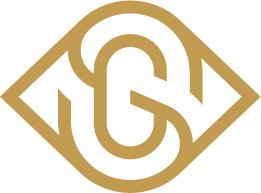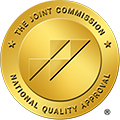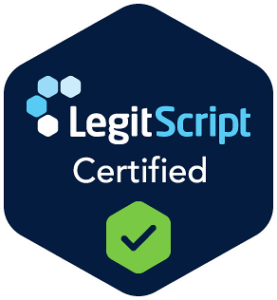For those trapped in heroin’s cycle, Georgia’s treatment options, which range from medically supervised detox to holistic therapies create a roadmap to sobriety. Georgia Sky tailors the approach to match each client’s needs, ensuring everyone receives care aligned with their unique struggles. With a focus on long-term recovery, these programs empower people to reclaim control, proving that heroin addiction treatment is transformative.
What Are The Signs And Symptoms Of Heroin Addiction?
Physical Signs
- Track marks or bruises. Frequent needle use may leave scars or discoloration on arms, legs, or other injection sites.
- Sudden weight loss. A dramatic drop in weight due to loss of appetite and poor nutrition.
- Slowed movements. Extreme drowsiness, slow speech, or nodding off at random times.
- Withdrawal symptoms. Sweating, nausea, shaking, or muscle pain when not using heroin.
Behavioral & Emotional Signs
- Secretive behavior. Lying, hiding drug use, or isolating from loved ones.
- Financial problems. Sudden and unaccounted-for financial issues, theft, or consistently asking to borrow funds.
- Loss of interest. Neglecting hobbies, work, or responsibilities that were once important.
- Mood swings. Rapid shifts between euphoria, irritability, or depression.
Psychological & Long-Term Effects
- Strong cravings. An intense urge to use heroin makes it hard to focus on anything else.
- Memory issues. Trouble concentrating or recalling details due to prolonged drug use.
- Risk-taking. Engaging in dangerous activities, like driving under the influence or sharing needles.
What Are The Dangers Of Untreated Heroin Addiction?
Chronic heroin abuse can alter brain structure, damaging white matter and impairing memory, decision-making, and the ability to manage stress. Prolonged opioid use may lower sex hormones, disrupting reproduction, metabolism, and energy levels. When heroin addiction is left untreated, the use may progress to lead to anxiety, depression, paranoia, cognitive worsening, and even suicidal thoughts.
Addiction can lead to loss of employment, schooling failures, homelessness, money troubles, run-ins with the law, and damaged relationships. The tolerance built up from extended use increases the chance of using lethal doses. An overdose can cause slowed or stopped breathing, brain damage, or death.
What Is Detox?
The initial stage of heroin addiction treatment involves detoxification. It focuses on safely removing heroin from the body with medical help. Here’s what makes it essential:
- Medical clearance and initial support. Doctors and nurses assess physical and mental health before overseeing withdrawal. Monitoring vital signs helps avoid dangerous complications.
- Withdrawal relief with medications. Drugs like methadone, buprenorphine, and naltrexone are used to ease cravings and reduce discomfort. These tools make the process more manageable.
- Comfort measures and symptom management. Alongside primary medications, treatments like clonidine or over‑the‑counter remedies may help with anxiety, stomach upset, sleep disruptions, and muscle aches.
- Structured care environment. Detox usually lasts around one week in inpatient settings where medical staff are available at all times. Outpatient options also exist for milder cases.
- Preparation for ongoing recovery. Detox sets the stage for the next phase of heroin addiction treatment, which includes therapy, medications, and support systems to reduce relapse risk.
What Is Withdrawal?
Withdrawal is the body’s reaction when heroin use is reduced or stops after being dependent. Understanding this phase is essential to guide someone safely through heroin addiction treatment, ensuring both physical and emotional challenges are managed.
What Are The Symptoms Of Heroin Withdrawal?
- Restlessness & anxiety. A sense of unease, agitation, or panic as cravings set in.
- Excessive sweating. Uncontrollable perspiration, even in cool environments.
- Runny nose & teary eyes. Similar to cold or allergy symptoms due to nervous system changes.
- Muscle aches. Sustained and severe pain, predominantly affecting the back and legs.
- Nausea & vomiting. Severe stomach upset, often leading to dehydration.
- Diarrhea & cramping. Digestive distress occurs as the body tries to expel toxins.
- Goosebumps & chills. Often referred to as “cold turkey” due to the skin’s reaction.
- Insomnia. Extreme difficulty sleeping despite exhaustion.
- Depression & mood swings. Deep sadness, hopelessness, or sudden emotional shifts.
- Intense cravings. Overwhelming urges to use heroin again for relief.
- Fatigue & weakness. Lingering exhaustion as the body slowly recovers.
What Medications Help In Heroin Addiction Treatment?
- Methadone. A long-acting opioid agonist that gently activates the same receptors as heroin, reducing cravings and preventing withdrawal without causing a high. Methadone has decades of proven success in treatment and supports stability and long‑term progress.
- Buprenorphine (with or without naloxone). Buprenorphine, a partial opioid agonist, effectively reduces cravings and withdrawal symptoms, simultaneously presenting a decreased overdose risk. Combining it with naloxone (as in Suboxone) helps prevent misuse. This medication can often be prescribed in regular clinics and pharmacies.
- Naltrexone (oral or extended-release injection). An opioid blocker that stops heroin from producing any effect. It helps maintain abstinence after detox. The monthly injection (Vivitrol) removes the burden of daily dosing, though it requires full detox before starting.
- Lofexidine. A non-opioid medicine used during detox to reduce withdrawal symptoms like anxiety, sweating, and stomach cramps. It’s FDA-approved and usually used together with other therapies.
- Clonidine. Originally prescribed for high blood pressure, clonidine relieves symptoms such as muscle aches, restlessness, and agitation during withdrawal. It is often part of the detox medication plan.
These medications are most effective when combined with counseling, therapy, and support services. Together, they form a strong foundation in heroin addiction treatment, easing withdrawal, and reducing relapse risk.
What Types Of Therapy Support Heroin Addiction Treatment?
- Cognitive Behavioral Therapy (CBT). Helps people recognize and change negative thought patterns that lead to drug use, teaching healthier coping strategies.
- Contingency Management (CM). Uses rewards (like vouchers or small incentives) to reinforce positive behaviors, such as staying drug-free.
- Motivational Interviewing (MI). Encourages self-motivation by helping people resolve doubts about quitting and commit to recovery.
- 12-Step Facilitation. Guides patients through structured programs like Narcotics Anonymous (NA), fostering peer support and accountability.
- Group Therapy. Provides a safe space to share experiences, learn from others, and build a sober support network.
- Family Therapy. Repairs relationships damaged by addiction and educates loved ones on how to support recovery.
- Methadone/Buprenorphine Therapy. Reduces cravings and withdrawal symptoms while allowing the brain to heal under medical supervision.
- Naltrexone Treatment. Blocks heroin’s effects, preventing relapse by removing the drug’s rewarding sensations.
- Mindfulness & Meditation. Teaches stress management and emotional regulation to prevent relapse triggers.
- Art & Music Therapy. Encourages creative expression as a way to process emotions and reduce anxiety.
How Long Does Heroin Withdrawal Last?
This uncomfortable but temporary process is why professional heroin addiction treatment is crucial. Medical supervision can ease symptoms with FDA-approved medications while therapy addresses the root causes of addiction. With proper care, withdrawal becomes a manageable first step toward lasting recovery rather than an insurmountable obstacle.
The acute phase may end within 7-10 days, but post-acute withdrawal symptoms (PAWS) can linger, demonstrating why comprehensive heroin addiction treatment programs combine medical detox with long-term counseling and support. This integrated approach helps people navigate both the immediate discomfort and the ongoing psychological adjustments needed for successful recovery.
How Can Families Support A Loved One During Heroin Addiction Treatment?
- Educate Yourself First. Learn about heroin’s effects, withdrawal symptoms, and evidence-based treatments. Understanding the science behind addiction removes stigma and helps families respond with empathy rather than frustration when challenges arise.
- Become an Active Participant. Many heroin addiction treatment programs offer family therapy sessions or educational workshops. Attend these to improve communication, set realistic expectations, and align on how to create a sober-supportive home environment.
- Practice Compassionate Accountability. Balance encouragement with boundaries. Celebrate small victories in recovery, but avoid enabling behaviors like making excuses for relapses or financially supporting habits. Consistency helps rebuild trust.
- Build a Sober Network. Connect with support groups like Al-Anon or SMART Recovery Family & Friends. These communities provide coping strategies and remind families they’re not alone in this challenge.
- Prioritize Self-Care. Supporting someone in heroin addiction treatment can be emotionally taxing. Families should maintain their mental health through therapy, hobbies, and social connections.
- Prepare for the Long Term. Recovery isn’t linear. Families who view heroin addiction treatment as an ongoing process (not a one-time fix) can better handle setbacks without discouragement.
Georgia Sky Can Help With Heroin Addiction Treatment in Georgia
After detox, each client receives a personalized aftercare plan that links them to continued services, including relapse prevention, sober living support, and case-managed follow-up. With flexible scheduling, insurance acceptance, 24/7 clinical oversight, and Joint Commission accreditation, Georgia Sky balances safety and accessibility in effective heroin addiction treatment. Contact us today for help with your or your loved one’s substance use issues.




